Friday Briefing: The (good) food issue
Good morning and welcome to PORTUGAL DECODED. The weather outside is frightful and since there's still a while before swimsuit season arrives, let's enjoy the good food of Portugal.
TALK OF THE TOWN
Hey there! Do you enjoy reading PORTUGAL DECODED? Please consider donating to keep it free and independent – your generosity means everything!
POLITICS
On Saturday, two opposing protests will take to the streets of Lisbon over a recent controversial police operation in Martim Moniz. The operation was the focus of a tense debate in Parliament this week (More).
André Ventura is the latest figure to enter the 2026 Presidential race. In a letter sent to party members, the leader of far-right Chega said that he will officially launch his campaign on February 28 at the Jerónimos Monastery (More).
SOCIETY
The main suspect in the shooting at the Palácio do Gelo shopping centre in Viseu, which left one dead and two injured on December 27, 2024, turned himself in on Tuesday night (More).
Portugal reported an outbreak of highly pathogenic avian influenza among poultry on Monday, prompting the World Organisation for Animal Health (WOAH) to issue a health warning (More).
ECONOMICS
The CEO of Galp, Portugal’s largest oil and gas company, has resigned from his position, following reports of an alleged personal relationship with a senior director under his direct supervision (More).
The Housing Referendum Movement has announced that it will revise its proposal for a municipal referendum on short-term rentals in Lisbon after the Constitutional Court struck down its initiative (More).
CULTURE AND SPORTS
The face of King Denis (1261–1325), one of the most beloved kings in Portuguese history, has been reconstructed and revealed, marking the start of a year-long program commemorating the 700th anniversary of his death (More).
The remains of the great 19th century author Eça de Queirós have been laid to rest in the National Pantheon in Lisbon, in a ceremony attended by the President, the Prime Minister, and the Speaker of Parliament (More).
DECODER
Who was Maria de Lourdes Modesto?
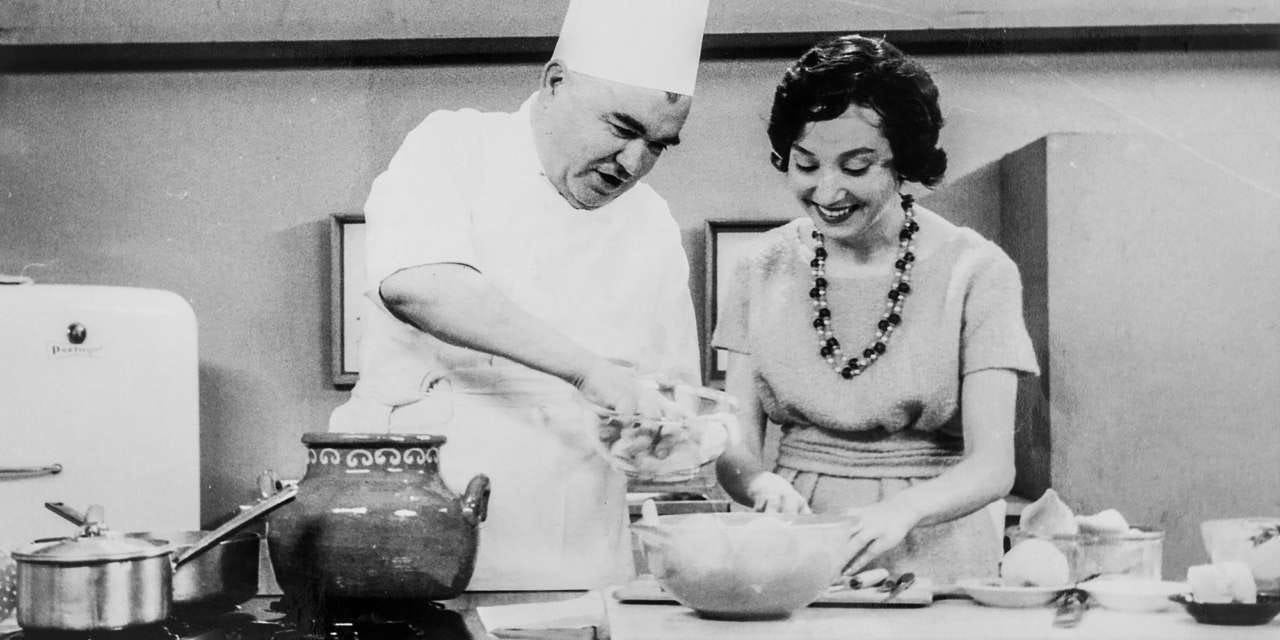
It’s impossible to talk about chefs in Portugal, and indeed about Portuguese cuisine, without mentioning the work of Maria de Lourdes Modesto. Born on June 1, 1930, in Beja, she never enjoyed provincial life and soon traded the Alentejo plains for cosmopolitan Lisbon. She eventually became an arts & crafts teacher at the Lycée Francais Charles Lepierre, which became a “springboard” to her career on TV. In 1958, RTP came to the school to report on the Molière play Monsieur de Pourceaugnac being staged there, in which she was participating. Her girlish charm, disarming smile, and distinctive personality, prompted the executives to invite her to present one of the first live cooking programmes on television. The programme, called ‘Culinária,’ became an instant success and ran for 12 years. The New York Times called her Portugal’s Julia Child in an 1987 article, available here.
So, how did she learn to cook?
Interestingly, she knew very little about cooking—almost nothing—before starting her television adventure. “My mother didn’t prepare us for domestic life,” she explained. She read extensively— “good cooking books” —studied, took courses in France, and dedicated herself to cooking with resilience. But even so, viewers complained: that the former teacher at the Lycée Français was too French in the kitchen; that the traditional recipe wasn’t like that; that her mum, aunt, grandmother did it differently. At a gastronomy congress, she was even called the “number one enemy of Portuguese cuisine’” So she came up with the idea of organising a recipe competition to receive recipes from different regions of the country. It was a success: thousands of recipes came in.
How did “Traditional Portuguese Cooking” come about?
For 20 years, she didn’t know what to do with those letters. Curious and restless, she experimented, she travelled, she met the authors. Realising how important food was to each of them, she eventually lost the courage to write a book about Portuguese cuisine, thinking it was too much responsibility. Until, at the end of the 1970s, everything changed: during a consultation, a doctor told her she that had a brain tumour. It turned out to be a false diagnosis but it was the push she decided to get down to work. Over three years, Modesto respectfully worked on these recipes, studied their origins and eventually selected 800 representative and authentic recipes from all of Portugal’s regions (islands included) to feature in the book, which today is widely considered the ‘bible’ of Portuguese gastronomy. Since its first publication in 1982, it has been published three dozen times and sold around half a million copies.
Right: where can I buy it?
Unfortunately, the book - both in Portuguese and English - has been out of print for several years. Some copies can still be found for sale online, but their prices can run into hundreds of euros/dollars (Amazon.pt, for example, sells a copy of the English edition for $300 here). If you’re not willing to spend this much money to become an expert in Portuguese gastronomy, don’t despair: there’s another way to get some of Maria de Lourdes Modesto’s magic. This is because she gave her recipe collection to the Association of Professional Cooks of Portugal (ACPP), which has put the transcriptions of the original letters submitted to the RTP competition on its website (here). As a result, all the recipes are now available to everyone, organized by 12 gastronomic regions of Portugal (including Madeira and Azores). So, if you ever wondered how to make a traditional Caldo Verde, Bacalhau or Pudim de Abade Priscos, this (with the help of a translator) could be a good place to start.
TIPS OF THE WEEK
Porto
Simplesmente Vinho
Simplesmente… Vinho is an off salon, an independent and alternative event, which brings together vignerons united simply… by wine. Wine that respects the land and terroir, the vineyard and grapes, people and traditions. This year’s edition takes place on February 21-25 at the historic Alfândega do Porto building, presenting 111 vignerons from Portugal and Spain, and a further 14 from Jerez. In addition to the wines, there will be live music and petiscos from wine-friendly restaurants, culminating in an organic brunch on Sunday, February 25. More information here.
Celorico da Beira
Queijo da Serra Fair
At Serra da Estrela, it’s cheese fair season. Considered the capital of Serra da Estrela Cheese, Celorico da Beira is the ideal place to discover the history of this exquisitely delicious delicacy, made exclusively with milk from Bordaleira breed sheep. On February 21-23, Celorico da Beira hosts a fair to showcase the best of tradition, giving customers a taste of what is most genuine. The magnificent Town Hall 17th century building hosts the Serra da Estrela Cheese palace, an ideal place to taste the buttery texture of the best cheeses in the area. And if you want to know a little more about the culture associated with this product, visit the Farmer and Cheese Museum, a place in which the goal is to keep traditions and the lifestyle of old farmers and cheese manufacturers alive.
Santiago do Cacém
Santo André Lagoon Eel Festival
Fried, grilled, in stews, caldeiradas, cataplanas, açordas, à bulhão pato or escabeche, eels can be cooked in a variety of way. The Santo André Lagoon Eel Festival, in its tenth edition between January 24 and February 9, invites visitors to sample the delicacy fished in the nature reserve area. Everything is done according to the relaxed rigour of Alentejo cuisine and without any competitive nature. The event is also tribute to the work of the fishermen from Lagoa de Santo André, who supply this excellent fish, which is fundamental to the region’s identity and economy.
Several locations
Nose to Tail - Portugal
On February 3-9 2025, the Brazilian rural producer Rafael Cardoso will be taking participants on an immersive journey into the rural and culinary environment of the pig in Portugal. Activities include visits to local pig producers, smokehouses and specialised restaurants, workshops with chefs, researchers, teachers and experts and even a traditional matança of a black pig in Alentejo. Anyone wishing to join the 15-member entourage can still do so - the trip (which this time will have a strong focus on the North and on the Bísaro pig and smoked meats) costs 3300 euros with accommodation and meals included. More information here.
Hey there! Do you enjoy reading PORTUGAL DECODED? Please consider donating to keep it free and independent – your generosity means everything!






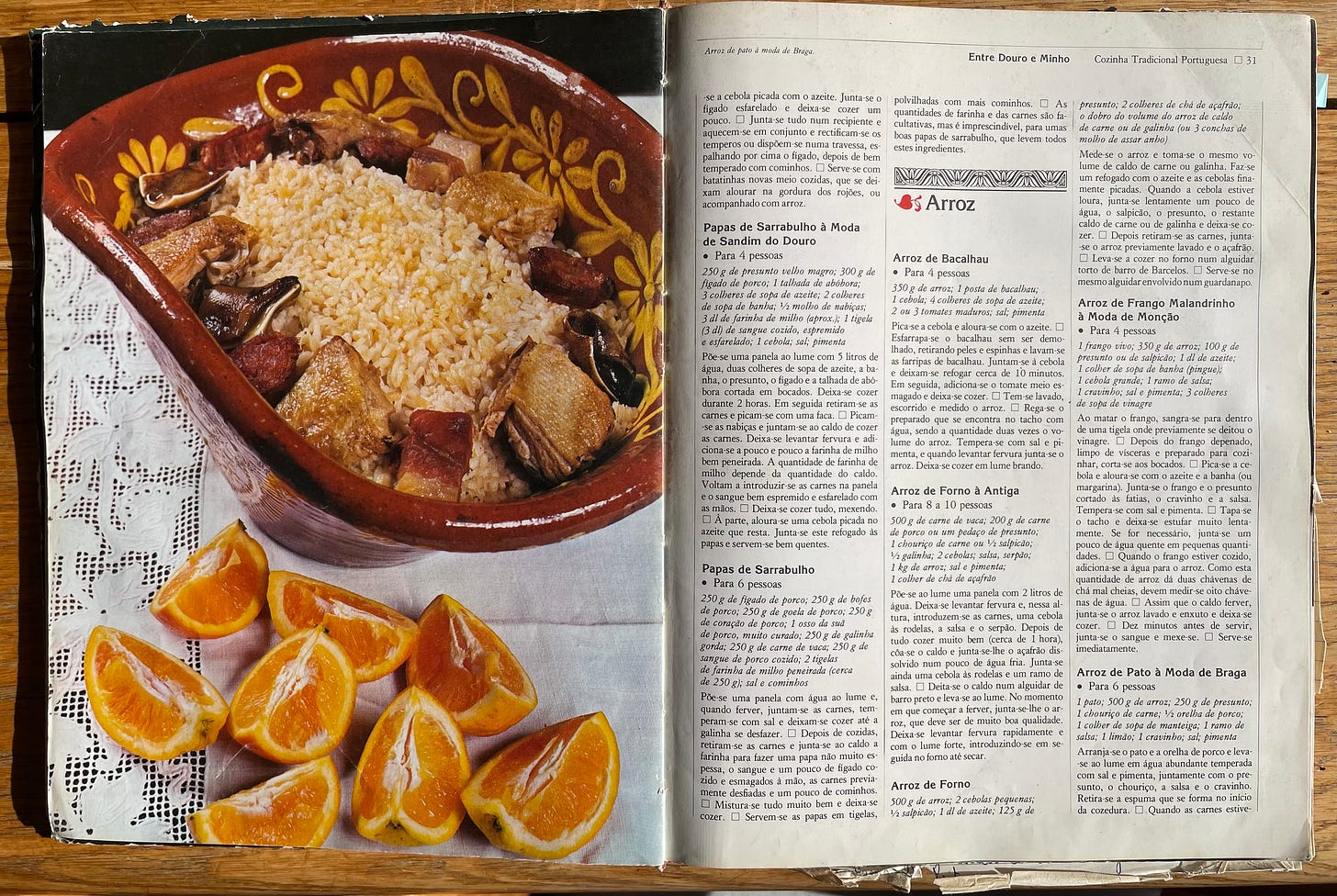
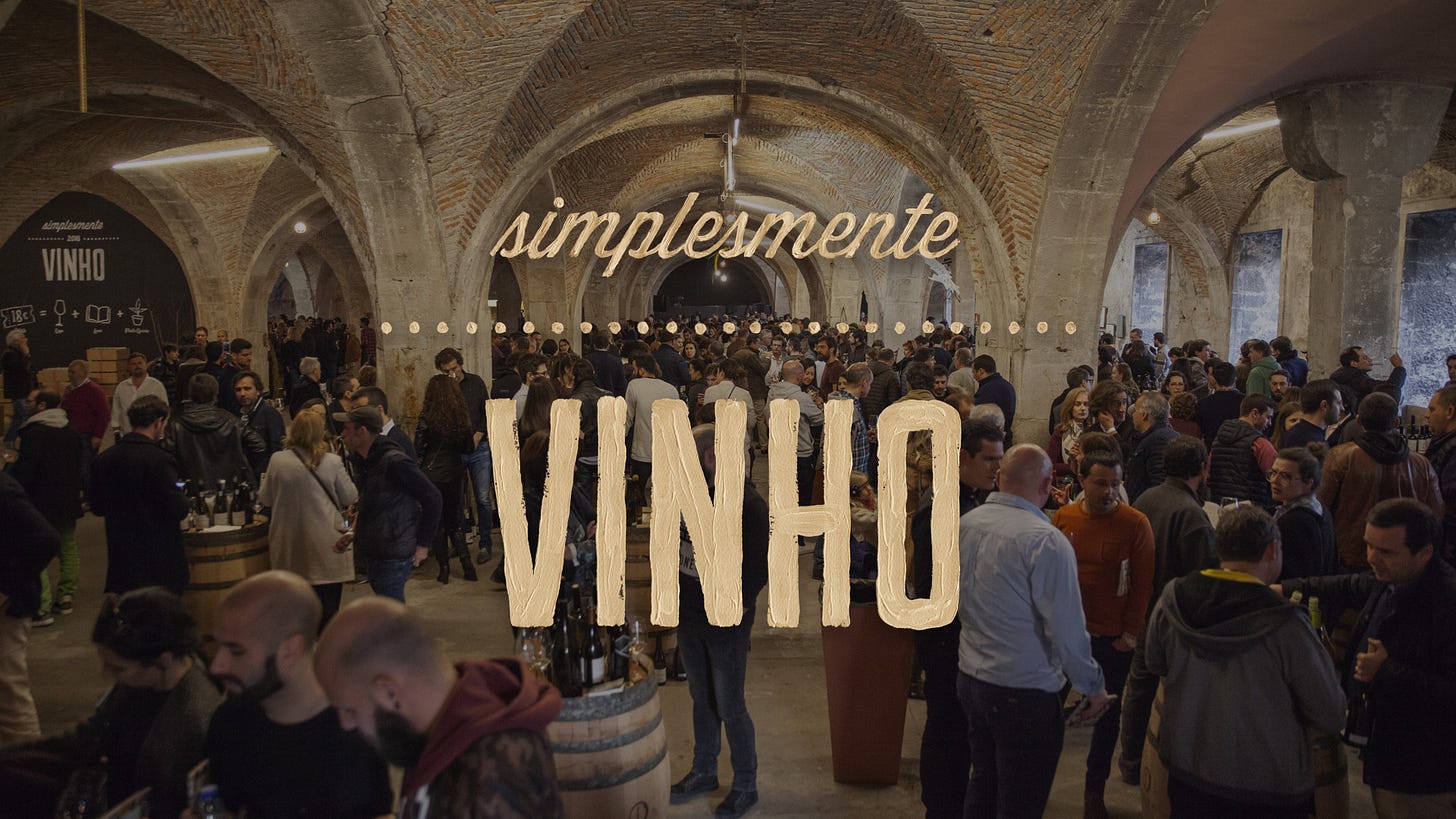
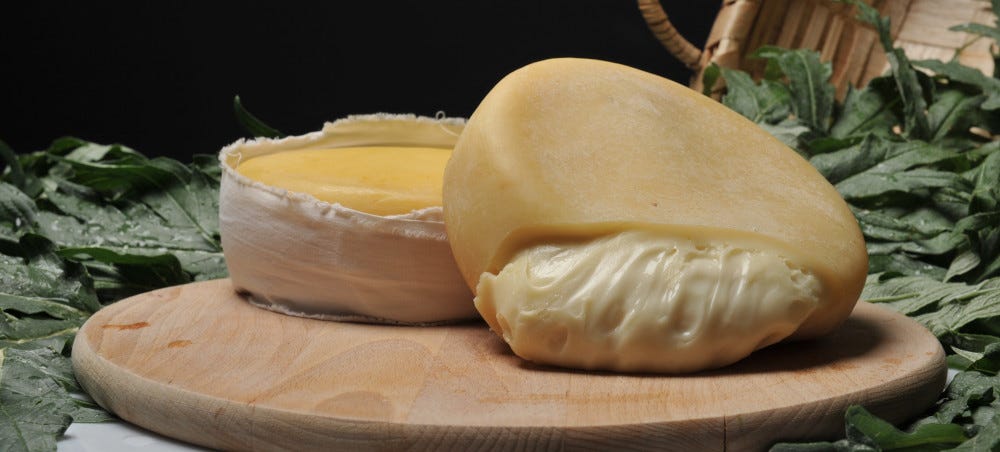
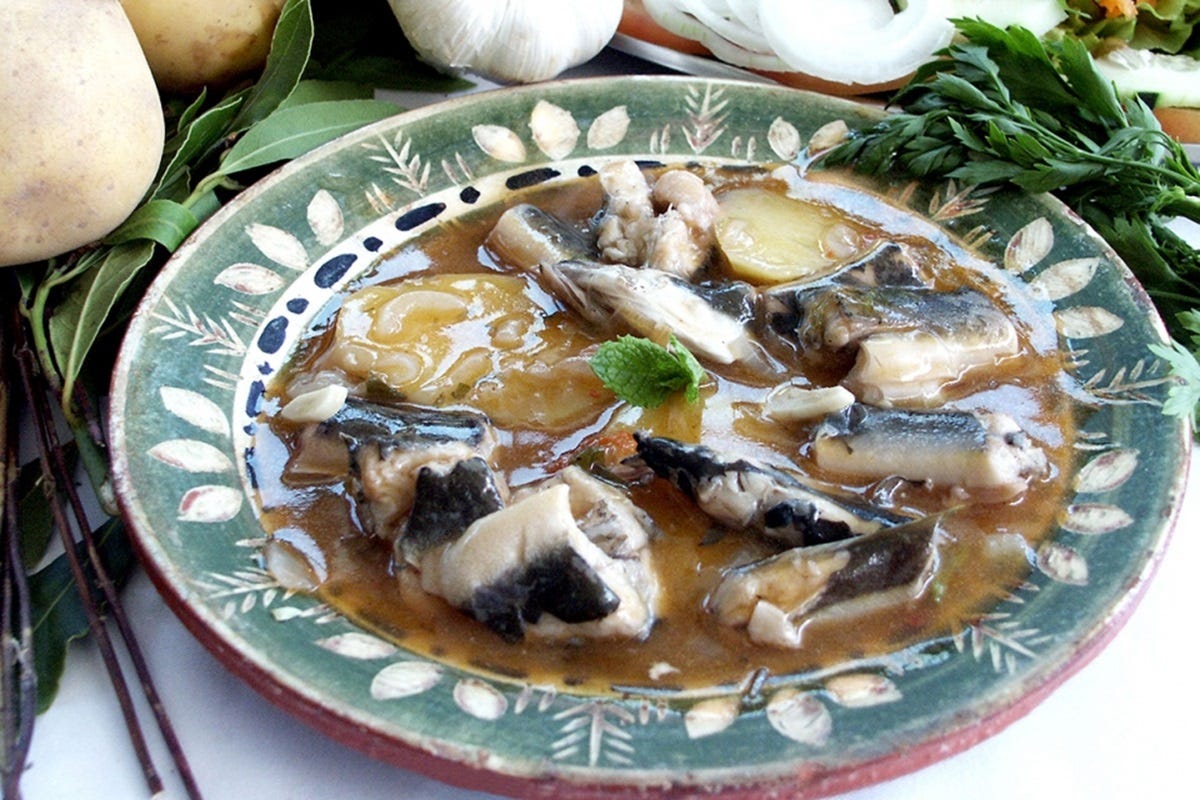
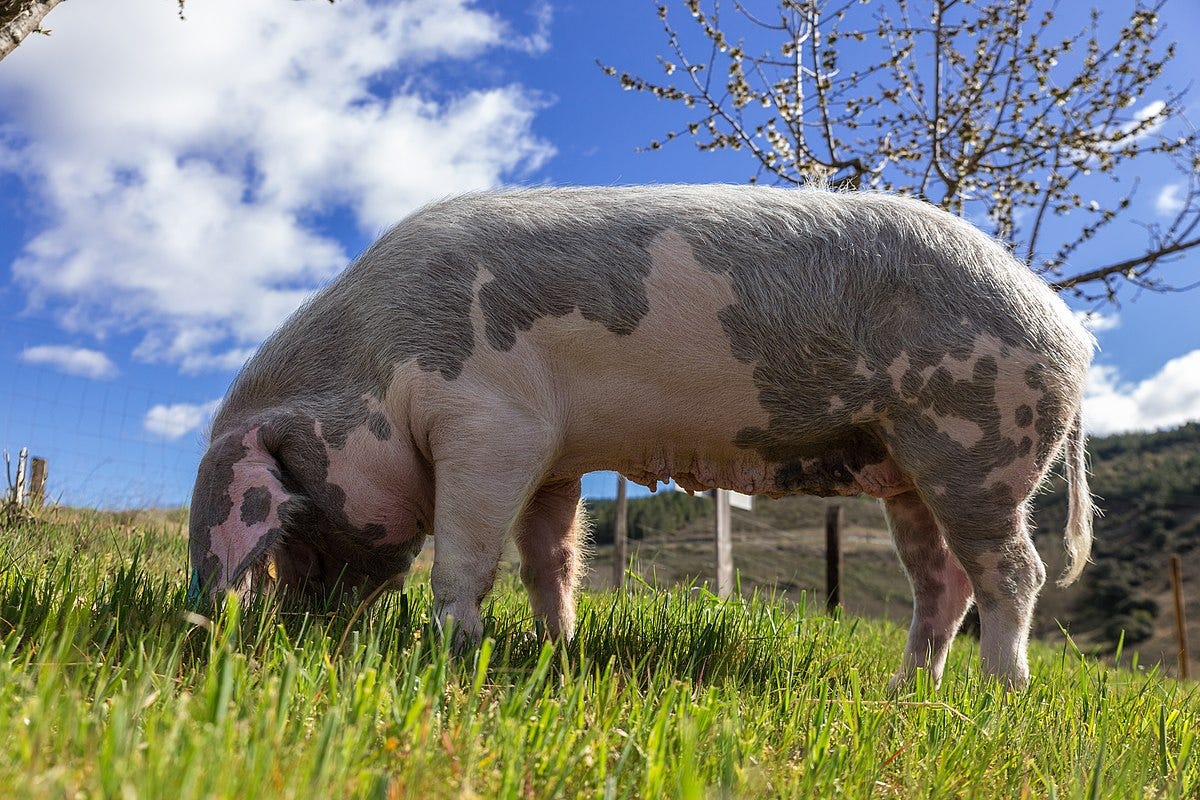
I just loved this edition of your newsletter.. As a food anthropologist and a foodie living in Portugal, this week’s deep dive was right up my alley.